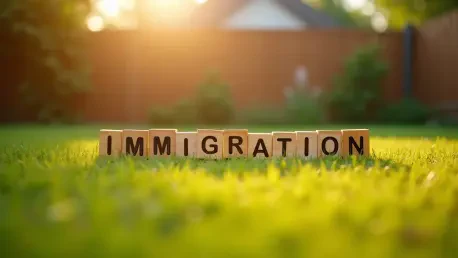What happens when a simple bureaucratic error uproots someone’s life, sending them to a foreign country despite their legal right to reside in the U.S.? The case of Kilmar Abrego Garcia, erroneously deported to El Salvador, brings this troubling scenario into vivid focus, illustrating the profound personal and legal impacts of mistaken deportations.
The Stake in Legal Errors
Every year, numerous deportations occur under the banner of immigration law, yet not every case is a matter of lawful procedure. Erroneous deportations surface as poignant reminders of systemic flaws within current governmental operations. The heart of the issue lies in inadequate checks and an accountability framework. When such errors are left unaddressed, they risk making individuals victims twice over—first through wrongful deportation, and then by denying them their right to remedy legal mistakes. Societally and individually, the impact spirals into unresolved trauma and questions about trust in the immigration system’s integrity.
Beyond Red Tape: Legal Frameworks at Play
Deportation processes in the U.S. are governed by complex legal frameworks that sometimes leave room for errors with significant consequences. Garcia’s case highlights not only a personal misfortune but also the challenges inherent in the immigration process. Under previous administrations, executive orders have shifted how deportations are processed, occasionally under pressure to make sweeping changes in policy. Such policies can exacerbate the risk of errors, underscoring the need for systematic and legal diligence.
Expert Opinions and Stories of Struggle
Legal experts like Simon Sandoval-Moshenberg bring invaluable insight into cases involving wrongful deportation. He articulates the deep-seated procedural issues, urging collaboration and transparency to rectify such wrongs promptly. Case studies reveal a concerning frequency in errors, propelling a discourse clouded by bureaucracy. Anecdotes of individuals who have suffered such ordeals paint a picture of prolonged detainment, highlighting personal perseverance amidst legal battles to reclaim their lives.
Pathways to Justice: Preventing Legal Missteps
Moving forward, addressing mistaken deportations requires both immediate practical steps and long-term strategic changes. Legal remedies currently available must be leveraged more efficiently, ensuring adverse situations are hastily corrected. Reform efforts are essential to overhaul existing protocols—streamlining them to diminish chances of error. Legal professionals, armed with systematic strategies, advocate tirelessly to ensure justice within the immigration law spectrum. Reforms aim to close the gap between policy and practice, offering clearer, more foolproof processes.
Toward Constructive Action
Reflecting on these challenges, it becomes clear that legislative and procedural reform is paramount to preventing future mistakes. Enhanced oversight and accountability mechanisms are vital in safeguarding against legal mishaps. Efforts must focus on proactive measures, deploying technology and data analytics for accuracy checks within immigration systems. The broader conversation surrounding immigration reform should encompass better handling of deportations, ensuring that the unfortunate mistake of a wrongful deportation becomes increasingly rare. Addressing these gaps not only protects individuals like Garcia but reinforces faith in the system designed to serve and protect them.









